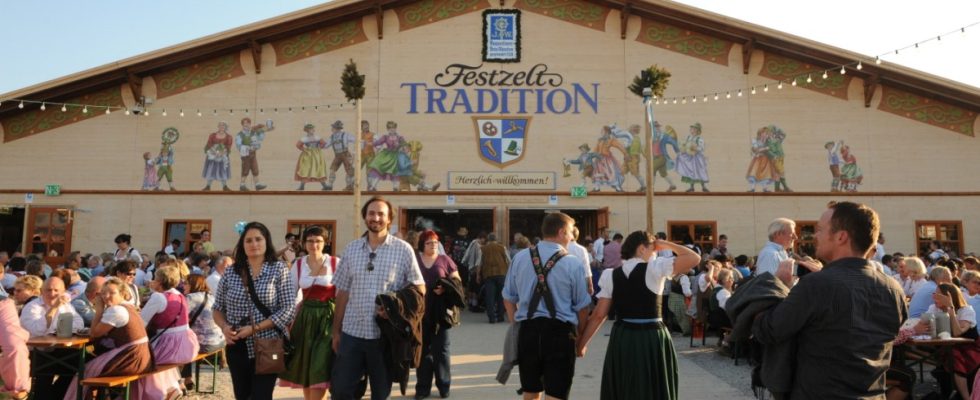Every four years there is no Oide Wiesn because then the Central Agricultural Festival (ZLF) takes place in the southern part of the Theresienwiese. This is what the city council decided in 2010. But things are looking different this year: the Bavarian Farmers’ Association’s exhibition will also be canceled in 2024 – like in 2020, due to the cancellation of Oktoberfest due to the corona pandemic. The reason this time is that not enough exhibitors have registered. Economics officer and Oktoberfest boss Clemens Baumgärtner (CSU) regretted the cancellation and has already announced that an Oide Wiesn will take place again this year instead.
“It will be sporty for my presentation,” says Baumgärtner to the SZ, “we also have to prepare the fan festival for the European Football Championship. On the other hand, I am of course happy for the fans of the Oidn Wiesn.” He is clear that his office now has to work a lot of overtime.
The Secretary General of the Bavarian Farmers’ Association, Georg Wimmer, can currently be reached at the Green Week in Berlin. “All of our hearts are bleeding,” he says on the phone, “but if more than 50 percent of the exhibitors are missing, then it’s no longer a central agricultural festival.” Although there were enough people for the tents, there were far too few registrations for the outdoor area, which is otherwise mainly booked by agricultural machinery manufacturers. So they had to make “the very bitter decision” to cancel the ZLF. Apparently the festival in Munich had become too expensive for potential exhibitors. The main impact here is the high level of security and accommodation costs.
So in all likelihood, instead of a “small Oktoberfest” on 26 hectares, there will be a “big Oktoberfest” on a good 34 hectares. At least Baumgärtner and all the major town hall factions are in favor of it. Both the Green Wiesn city councilor Anja Berger as well as the SPD city councilor Klaus-Peter Rupp and the CSU parliamentary group leader Manuel Pretzl regretted the cancellation and at the same time advocated the Oide Wiesn as a “wonderful alternative program” (Rupp). Pretzl spoke of good news, especially for the showmen who had not yet had a chance. The city now has to “turn on the Oktoberfest turbo and reschedule.” And Anja Berger was already looking to the future: “For the next central agricultural festival in 2028,” said the Wiesn city councilor, “I would like to see a dialogue between the farmers’ association and the Festring as the initiator of the Oidn Wiesn and the city with this goal of a common concept. This could then be a great, joint historical celebration where people can also be introduced to agriculture.”
Oktoberfest hosts remain relaxed for now
The hosts of the festival tents at the Oidn Wiesn are relatively relaxed about the cancellation. “There was supposed to be a scaled-down version of the Oidn Wiesn on the edge of the ZLF anyway, with three tents and a few rides,” says Beppi Bachmaier from the Herzkasperlzelt. “The final discussions would have taken place next week.” “In this respect,” says his program director Martin Jonas, “we have already planned a program, even if not on the normal scale.” Then he adds: “But it’s okay now!”
Christian Winklhofer from Festzelt Tradition also says: “Sure we’ll do it, but we’ll just wait for the new tender.” And Lorenz Stiftl from Schützenlisl says: “We always have a plan B anyway, you don’t know what can happen.” He seems to be less surprised by the cancellation, but the general change does not go unnoticed by the farmers: “The young farmers have long been finding out about new machines on the Internet, and the exhibitors are going to cheaper areas such as at the Karpfhamer Fest and the Rottalschau , where 400,000 visitors come every year.” At the last ZLF in 2016 there were 280,000 visitors. There are a lot of them from Munich who don’t need combine harvesters.
Florian Oberndorfer from the small Wiesn tent Münchner Knödelei at the normal Wiesn, who usually always has to take a break when the Central Agricultural Festival takes place, is also confident. “We are well prepared and have all the checklists up to date because we apply every year anyway,” he says: “But I’ll only be happy when I actually get the acceptance in April.”

